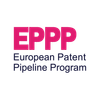Multinational pharmaceutical company Merck Sharp & Dohme has been granted an interlocutory injunction by the Irish High Court to prevent Mylan (now part of global healthcare company Viatris) from selling the anti-diabetic medication ‘Janumet’ in Ireland. This landmark case has made headlines due to its focus on the validity of SPCs and here our Director Anne Marie Carr explores what the decision — which upholds Merck’s monopoly — means to parties that are looking to enter a market where potentially relevant IP is in force.
Background to the case
The judgement was delivered by Mr Justice Mark Sanfey on 20 January 2023 (Merck Sharp & Dohme LLC v. Mylan Ire Healthcare Limited and Ors. [2023] IEHC 24).
The plaintiff (Merck Sharp & Dohme LLC) sought an interlocutory injunction to restrain the defendants (collectively Mylan) from offering, putting on the market or using products containing sitagliptin and metformin prior to the expiry on 7 April 2023 of supplementary protection certificate (SPC) number 2008/024.
SPC No. 024 (granted based on European Patent No. 1 412 357) protected sitagliptin used in combination with metformin, the combination of which was sold and marketed by the plaintiff under the brand name ‘Janumet’ in Ireland.
What is an interlocutory injunction?
An interlocutory injunction is a court order that temporarily restricts a party from taking certain actions, or requires a party to take certain actions, pending the final outcome of a lawsuit. The purpose of an interlocutory injunction is to preserve the status quo and prevent irreparable harm until a final decision can be reached in the case.
Arguments at the High Court
The plaintiff argued that upon grant of the SPC, the Irish Patent’s Office (as it was then called) was satisfied that the combination product was protected by European Patent No. 1 412 357, had the relevant authorisations to be placed on the market and had not been the subject of a previous certificate or authorisation.
The plaintiff further argued that the defendants had taken no steps to establish the alleged invalidity of the SPC in Ireland (to ‘clear the way’) and that the launch of generic sitagliptin/metformin combination products in Ireland before 7 April 2023 would have the effect of destroying its monopoly for the combination product, resulting in “a massive reduction to the value of its Janumet products in a market with aggressive competitors”.
The defendants disputed the validity of the SPC (referring to findings of invalidity in other jurisdictions such as Germany), as well as whether the product (the subject of the SPC) was protected by the basic patent.
Both parties referred to the various court decisions in Merck Sharp & Dohme Corporation v Clonmel Healthcare Limited [2020], which dealt with the circumstances in which a court should grant an interlocutory injunction. The High Court therefore proceeded to assess the circumstances of the present case in the light of these principles.
In its assessment, the Court held that if the plaintiff succeeded at the trial, a permanent injunction might be granted and there was a fair question to be tried — which also involved a consideration of whether the case would probably go to trial. The Court considered that damages would not be an adequate or full remedy for either party and concluded that the balance of potential irreparable harm favoured neither party decisively.
The Court also considered the strength of the rival arguments — in particular, arguments that the SPC had been found invalid or valid in other jurisdictions and the defendants’ failure to ‘clear the way’ by commencing invalidity proceedings.
Finally, the Court considered the presumption of validity of the SPC.
Validity of the SPC
The Court concluded that the SPC holder has a right, conferred by a process of law, which is presumptively valid — and that the defendants had failed to ‘clear the way’ by initiating invalidity procedures or otherwise.
The defendants failed to make any case as to why they were not proactive in challenging the SPC in Ireland and why they chose to argue for its invalidity only by way of counterclaim in the present proceedings. The Court was of the view that the failure of the defendants to take steps to ‘clear the way’ was a factor in support of the Court preserving the status quo ante by granting injunctive relief.
The Court therefore concluded that the balance of convenience and the balance of justice favoured the granting of injunctive relief to restrain the defendants from offering, putting on the market or using products subject of SPC No. 2008/024.
What does this mean for new market entrants?
This decision reaffirms that third parties should not ignore or disregard the existence of a potentially relevant SPC or patent simply because they consider that the SPC or patent in question is invalid. Rather, they should consider using the appropriate channels to challenge the invalidity of the SPC or patent before proceeding with activities which could potentially constitute infringement.
Failure to do so will increase their risk of having a request for an interlocutory injunction granted against them — restraining their activities until such time as a final judgement can be reached.
Before entering a new market, it’s important to seek advice from a qualified IP attorney. Get in touch with me at [email protected] for a free initial chat about your rights.





















